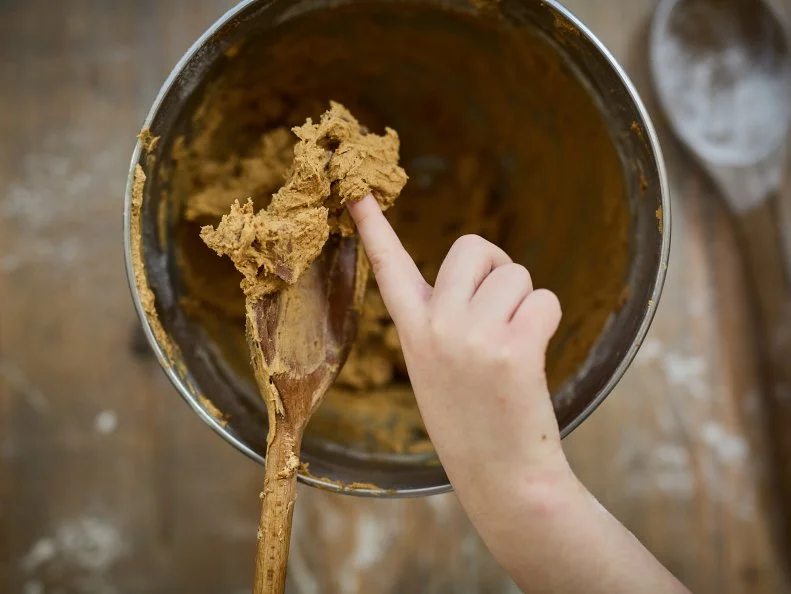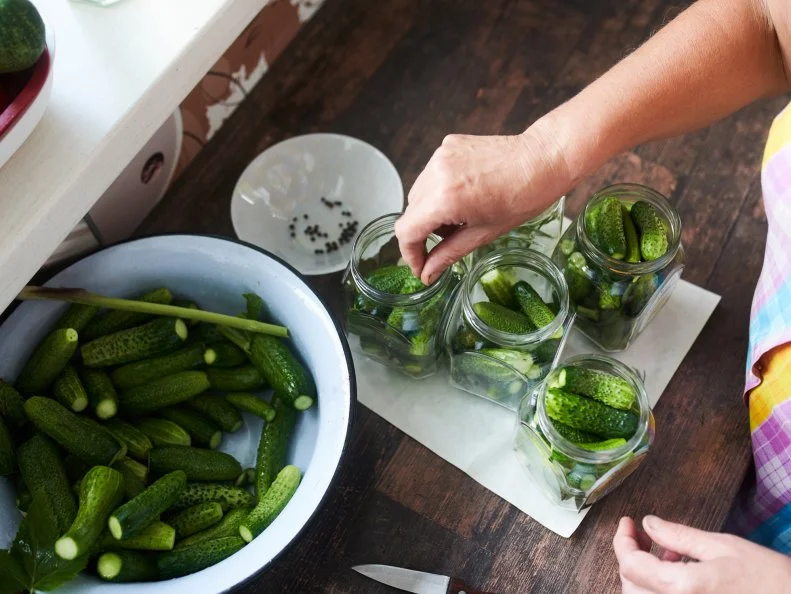20 Things Food-Safety Experts Won’t Eat
- Toby Amidor, M.S., R.D., C.D.N.
- Aug 19, 2025
- 8 min read

The Food Safety Diet
Food safety experts live and breathe the words they preach (I call it the “food safety diet”). They have seen cases and read studies on what happens after eating high-risk foods and know the gruesome details of what happens when you eat something contaminated. Here are the foods nutrition and food safety experts, including myself, just don’t feel are worth the risk.

Raw Milk
“Raw milk has been associated with numerous outbreaks over the past decade or two. Additionally, the threat from raw milk isn’t even from one bacterium, but rather from many. It may be contaminated with Listeria, Salmonella, E. coli or Campylobacter. Pasteurization of milk began back in the late 1800s because of the association of raw milk with foodborne illness. It just isn’t worth the risk!”
— Jennifer J. Quinlan, PhD, food microbiologist and associate professor at Drexel University

Raw Cookie Dough
“Raw cookie dough is something I will never eat. Raw cookie dough (generally) contains two raw ingredients that can be the source of germs that might cause food poisoning: eggs and flour. Yes, flour is a raw ingredient. It is made from wheat that is minimally processed and then packaged for home use. Flour and eggs should be cooked to a safe temperature before eating. So, BAKE your cookie dough. Eat it in the form of the final product — your delicious cookie.”
— Shelley Feist, Executive Director of Partnership for Food Safety Education

Buffets
“While food regulations have become more stringent and there are a plethora of policies in place for safe food handling and preparation practices, there are too many opportunities for mishandling for my liking. There are many chances for cross-contamination, especially when customers serve themselves. This can occur if a serving utensil ends up floating in a serving dish and anyone who touched the utensil previously had unclean hands. Improper temperature holding and insufficient cooling methods can also lead to the growth of unwanted bacteria.”
— Emily Ellis, MSc, quality assurance and research & development at Pellman Foods, Inc.

Raw and Undercooked Eggs
“I won’t eat raw and undercooked eggs, including homemade Caesar salad dressing, raw batter and egg nog. Eggs contain bacteria called salmonella that can cause food poisoning if raw or undercooked eggs are consumed. It is best to cook eggs thoroughly until the yolks and whites are firm. And as tempting as it is to try that raw chocolate chip cookie dough, it is not worth the risk.”
— Emily Rubin RD, LDN Thomas Jefferson division of Gastroenterology and Hepatology

Sliced Lemons
“Many bars and restaurants serve a wedge of lemon or lime on the side of sodas, water or beer. I always ask for mine without it, or pull it off right away. I do not know who handled the lemon and if they washed their hands properly before slicing it.”
— Toby Amidor, M.S., R.D., FoodNetwork.com nutrition expert and Wall Street Journal bestselling cookbook author

Raw Sprouts
“Despite the health benefits, I won’t eat raw sprouts. I stay clear of any food with raw sprouts in it, because they have the propensity to cause foodborne illness just by their nature and also by how they are grown. Sprouts have been documented as being hosts for many foodborne-illness pathogens. The best conditions for sprouting also support the rapid growth of foodborne-illness pathogens if present in the seed. Recent foodborne-illness outbreaks associated with raw-sprouts consumption have included E. coli 0157, Salmonella and Listeria. I will consider eating sprouts, however, only if well cooked.”
— Daniel E. Archer, MPH, REHS, senior manager of food safety, workplace safety and environmental compliance for Stanford University Residence & Dining Enterprises (R&DE)

Undercooked Ground Meat
“We do not eat raw or undercooked ground meat of any kind at our house. All raw meat has bacteria on the surface. Some are harmless and beneficial in breaking down the muscle fibers, as takes place in the aging process. However, raw meat can also have bacteria that could be harmful if the meat is not handled and cooked properly. Since these bacteria live on the surface of the meat, a steak can be enjoyed medium rare — about 145 degrees F internal temperature — but ground meat should be fully cooked to 160 degrees Fahrenheit. This is because the grinding process could potentially introduce bacteria into the middle of the patty. This is true for all types of ground meat — including pork, poultry or beef — whether it is local, organic, grass-fed or ground by hand at your local butcher.”
— Dr. Mindy Brashears, director of the International Center for Food Industry Excellence and professor of food safety and public health at Texas Tech

Raw Oysters
“Before I became a registered dietitian and learned about food safety, I loved eating raw oysters. Yum! But having learned about how risky they are I now only eat them thoroughly cooked. The culprit in raw oysters, Vibrio vulnificus bacteria, can be present even if they are harvested from non-polluted waters, and there is no way to detect it by sight or smell. Only heat can destroy the bacteria, so I only eat oysters that have been boiled or steamed until their shells are opened, or shucked oysters that have been fully cooked until they are opaque (milky white) and firm.”
— Mary Saucier Choate, M.S., RDN, L.D., manager of outreach and stakeholder engagement at the Partnership for Food Safety Education

Food from Bulk Bins
“Since I need to avoid gluten, I don’t eat from bulk bins at supermarkets. Anyone with celiac disease, gluten sensitivity or a serious food allergy should do the same, due to the possibility of cross-contact because the food is not packaged and tongs are often shared between bins.”
— Rachel Begun, M.S., RDN, culinary nutritionist and special-diets expert

Sushi
“I see no reason to consume uncooked fish proteins. Well-seasoned and gently cooked, sauteed and steamed fish is nutritionally rich and food-safe! The goal for safe food consumption is to reduce and, when possible, eliminate any risk for foodborne illness. So when folks brag to me about eating sushi, I compare it to someone boasting about going through a red light. Sometimes nothing happens, but [other times] illness follows.”
— John A. Krakowski, M.A., RDN, CDN, FAND, food safety coach and trainer in Flanders, N.Y.

Packaged Lunch Meats
“From a food safety perspective, many consumers don't realize that once opened, the product needs to be consumed within three to five days and not the expiration/use-by date. There is potential for the growth of Listeria monocytogenes, which can cause listeriosis, and may lead to illness and in some cases be fatal. The groups at risk include pregnant women, older adults (age 65 and over) and those with weakened immune systems. The solution? Buy fresh meats from the deli, refrigerate at no higher than 40 degrees F and use within three to five days. For those populations at risk, heating the meat to steaming or 165 degrees Fahrenheit will reduce the risk potential.”
— Susan M. Piergeorge, M.S., RDN, food and nutrition consultant and author of Boomer Be Well! Rebel Against Aging Through Food, Nutrition and Lifestyle

Potlucks
“While many people view potluck meals as a fun opportunity to enjoy a variety of foods prepared by others, I view them as a risky dining experience filled with hundreds of food safety mysteries. Was the food properly cooked, cooled, transported and reheated? What about the health or hygiene of the person making it? Did little Johnny with norovirus help Grandma make the cookies? Thanks for the invitation but I’ll pass.”
— Ellen Steinberg, PhD, R.D., L.D., food safety specialist

Food Samples
“While sampling programs at major retailers are required to follow proper food safety and sanitation regulations, there are many unsanitary opportunities that present themselves — thanks to the customers. Often, the customer is the one that doesn’t abide by the rules and contaminates the product by reaching into a covered bin with their hands, disregarding a covering or a hood over a tray of food, not using proper utensils to take food, etc. Having worked in the land of retail supermarkets, I have seen this behavior time and time again.”
— Robin Plotkin, RDN, Culinary Nutritionist and Founder of Board Mama, a charcuterie board and grazing table company

Homemade Preserved Foods
“I won’t eat home-preserved foods given to me as gifts. Many people don’t use recipes that have been tested for safety (in terms of acid levels, processing time, pressure if applicable). Botulism from home-canned goods can be deadly, so I won’t take any chances.”
— Leia Flure, MS, RD, LDN of Moderation Maven

Pre-Cut Melon
“Eating pre-cut melon, like cantaloupe or honeydew from the grocery store, can be a food safety issue due to the risk of improper food handling and lack of proper hand hygiene. Individuals who prepare pre-prepared fruits can contaminate produce with bacteria if they do not follow cleaning and sanitation guidelines. This is a risk because melons are eaten raw so any pathogens that come in contact with the fruit are not killed off before someone consumes them.”
— Alyssa Smolen, MS RDN CDN, media and community dietitian at Arugalyssa

Tartare
“Tartare is raw, ground up meat or fish. Unless your meat or fish is cooked to the proper minimum internal cooking temperature, bacteria have the ability to thrive and potentially make you very sick. That is why I avoid eating any sort of tartare.”
— Toby Amidor, M.S., R.D., FoodNetwork.com nutrition expert and Wall Street Journal bestselling cookbook author

Crab Salad
“Though I fully support eating seafood at least twice a week, I can’t jump on a board with crab salad because of how susceptible it is to foodborne pathogens. Oftentimes cooked crab used in a store-bought crab salad is only partially cooked, meaning it hasn't been heated to the temperature needed to kill off any potential bacteria or pathogens present. Plus, traditionally speaking, crab salad is made with mayonnaise, an egg-based ingredient that needs to be kept cool when serving at say a luncheon buffet. Too often I’ve seen these sorts of dishes enter the temperature danger zone and putting you (and me) as the consumers at risk of getting a food borne illness.”
— Elizabeth Shaw MS, RDN, CPT, nutrition expert at ShawSimpleSwaps.com

Damaged Canned Goods
“As a food safety expert, I would not eat food from a can that is deeply dented, rusted and/or bulging. Part of the canning process involves processing food at a high temperature to destroy harmful bacteria and inactivate enzymes before vacuum sealing it to keep air out. If the seam is broken, air gets in, potentially contaminating the food inside the can. It is not always easy to tell when this seam is broken but a dent so deep you can lay a finger in, rust that will not easily rub off or a bulge in a can are telltale signs that air and possibly harmful bacteria have been introduced into the food.”
— Cordialis Msora-Kasago, MA, RDN former Media Spokesperson Academy of Nutrition and Dietetics

Bar Nuts
“I would never eat from the dish of mixed nuts that sit out at a bar. It is hard to know how many dirty hands have touched them and how long they have been out. If you really love nuts, ask your bartender to pour a fresh bowl just for yourself.”
— Laurel Ann Deininger, MS, RD, CDE of Laurel Ann Nutrition

Homemade Eggnog
“While the combination of cream, milk, sugar, nutmeg, eggs and bourbon or rum is a quintessential holiday treat for many, I wouldn’t drink homemade versions made with raw eggs because of the risk of salmonella poisoning. Raw eggs may contain bacteria called salmonella that can cause foodborne illness, and as a registered dietitian nutritionist, I find that the risks of drinking homemade eggnog do not outweigh the benefits, particularly for anyone with an already compromised or vulnerable immune system. Pasteurization kills bacteria (including salmonella), so those who want to enjoy this creamy holiday treat without the food safety risks can look for pasteurized store-bought versions or use pasteurized liquid eggs (instead of raw) when making eggnog at home.”
— Malina Malkani, MS, RDN, CDN, owner of Maline Malkani Nutrition and author of Safe and Simple Food Allergy Prevention

Recalled Foods
“Don’t ignore food recalls! It’s important to steer clear of recalled foods, whether they are uncooked or cooked. These products carry a higher risk of contamination and foodborne illnesses like E. coli or Salmonella and may even contain physical contaminants like metal or plastic. Food recalls are in place to protect consumers from contaminated, defective or mislabeled products that have been removed from the market. Therefore, it’s best to avoid consuming them altogether. Stay safe and prioritize your well-being by listening to food recall warnings.”








